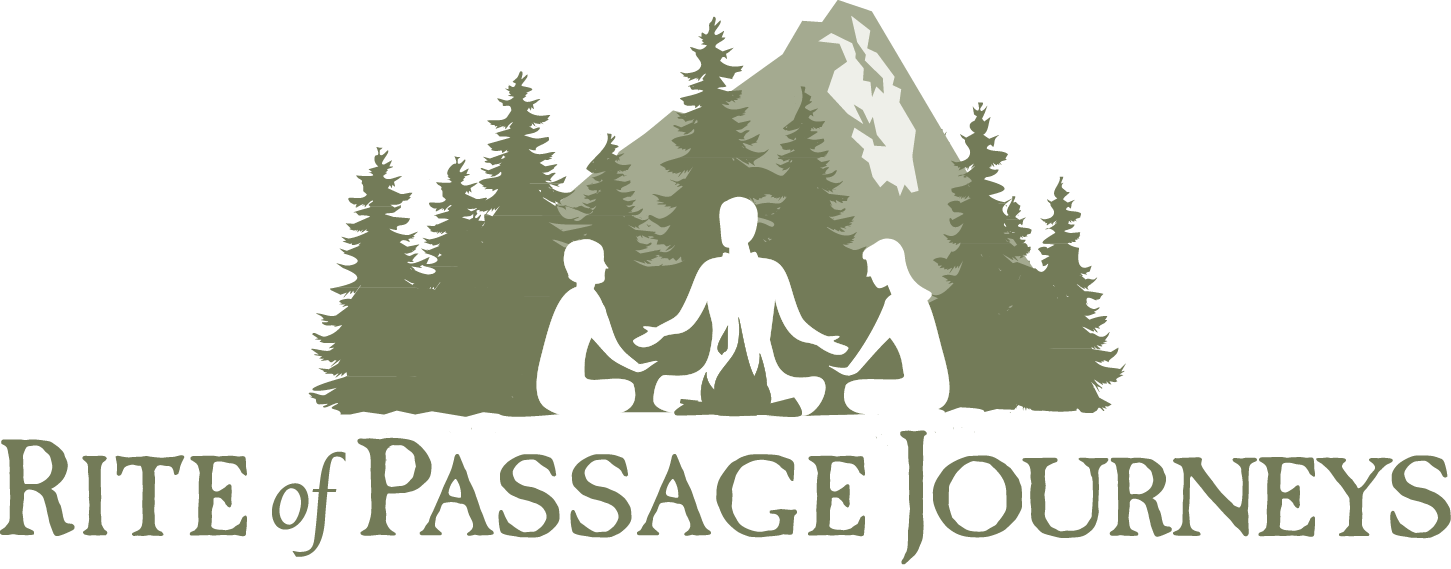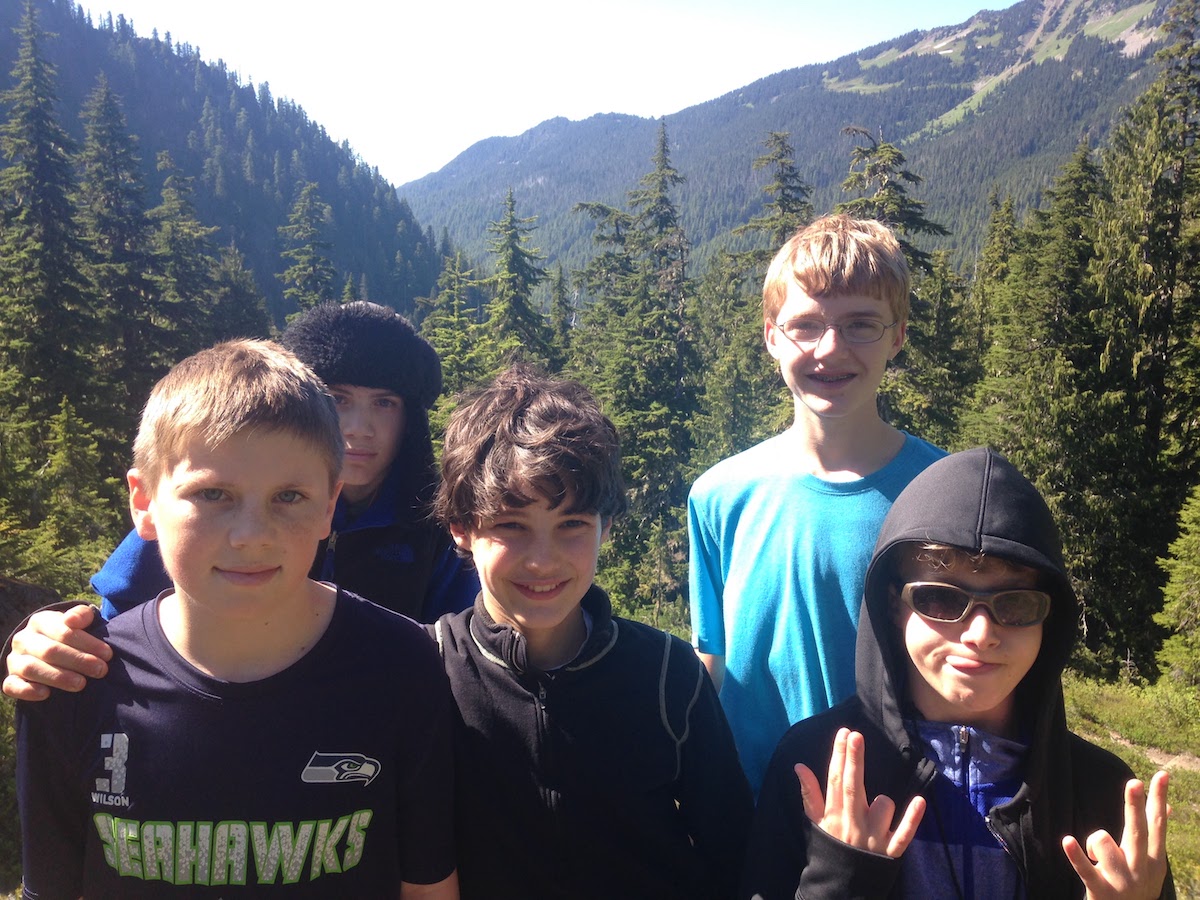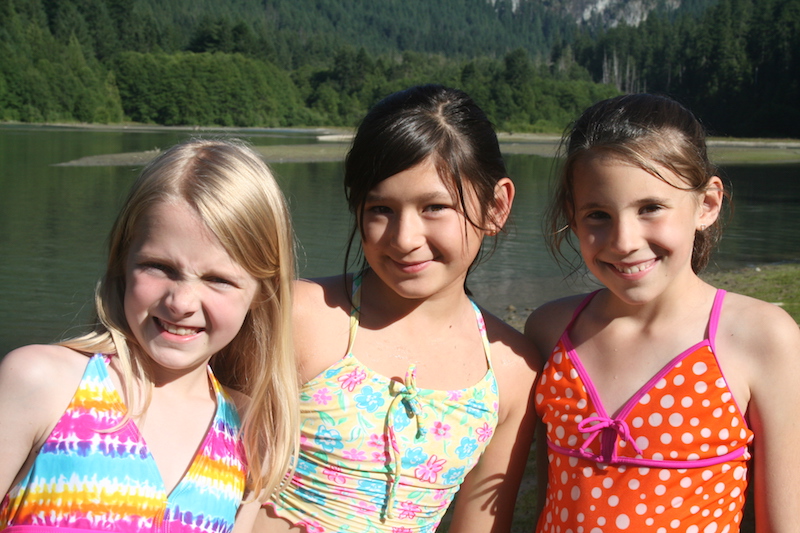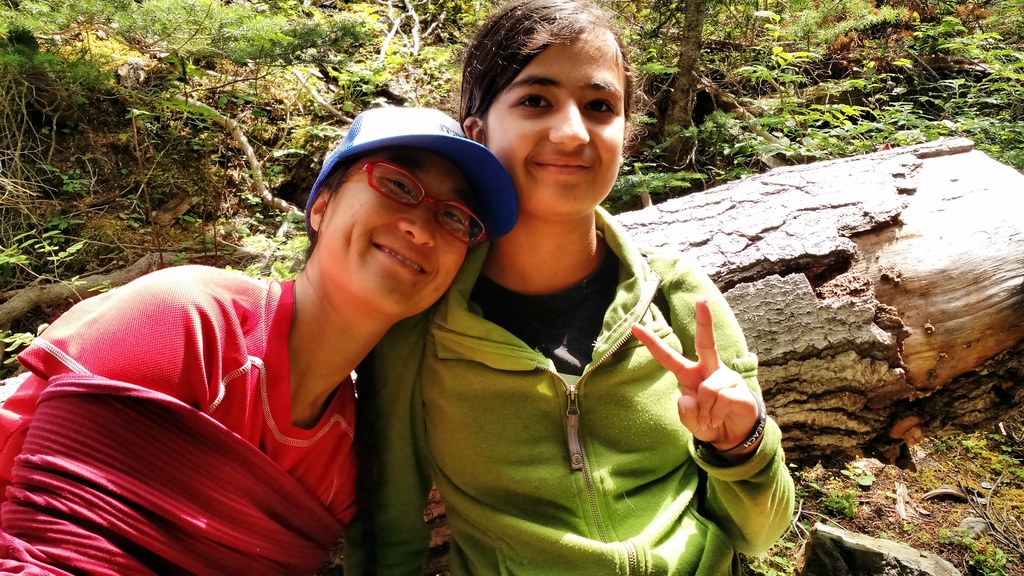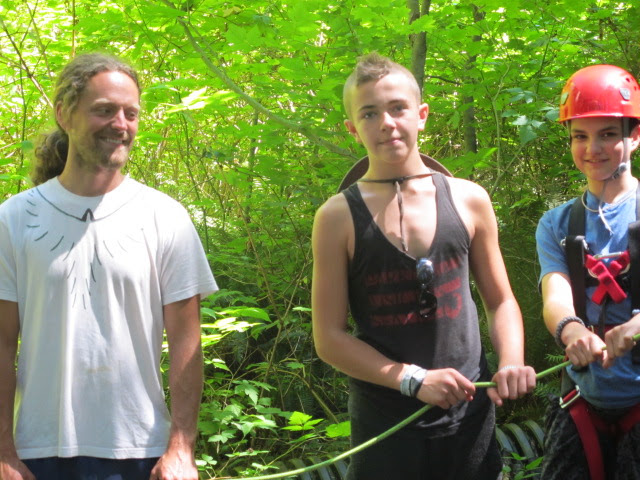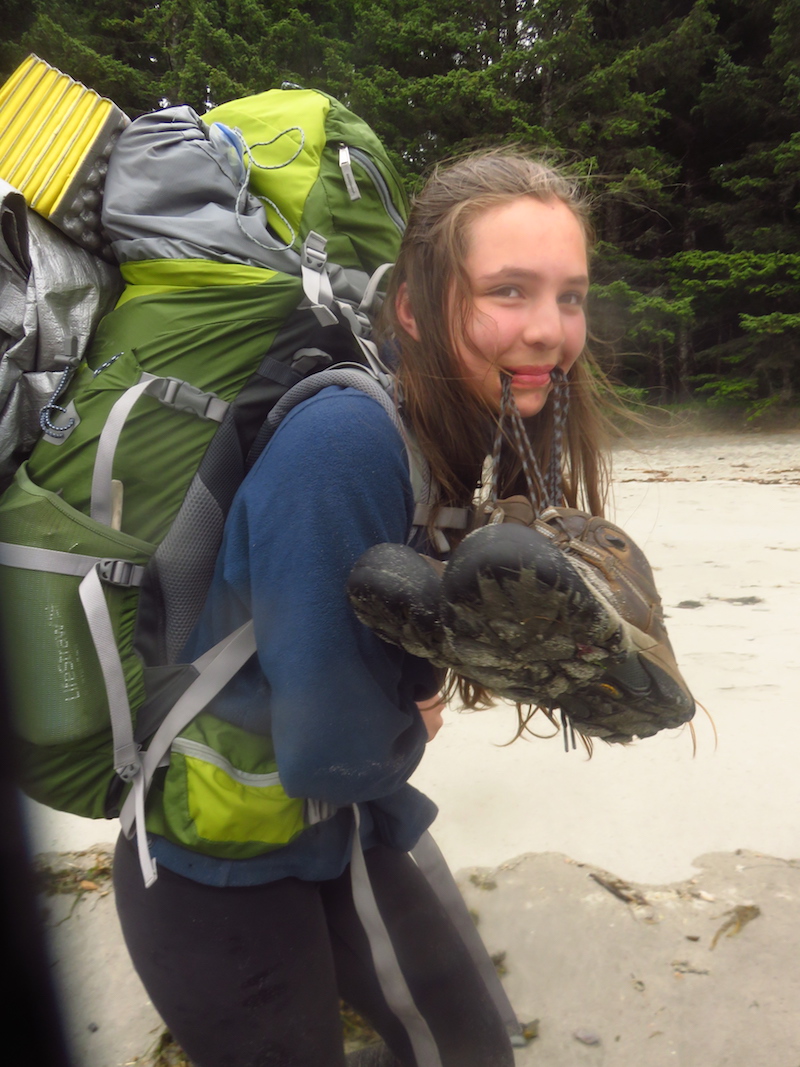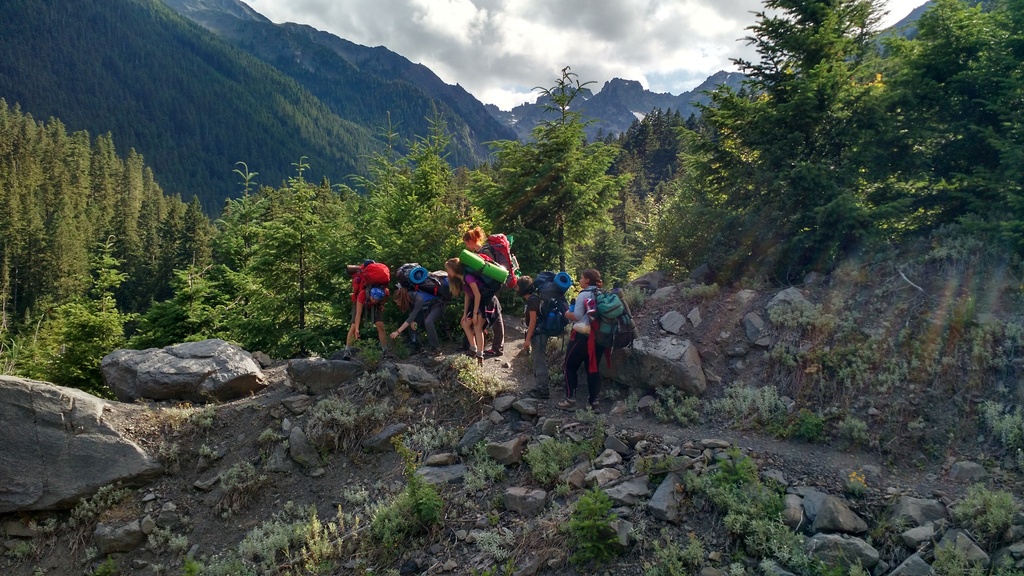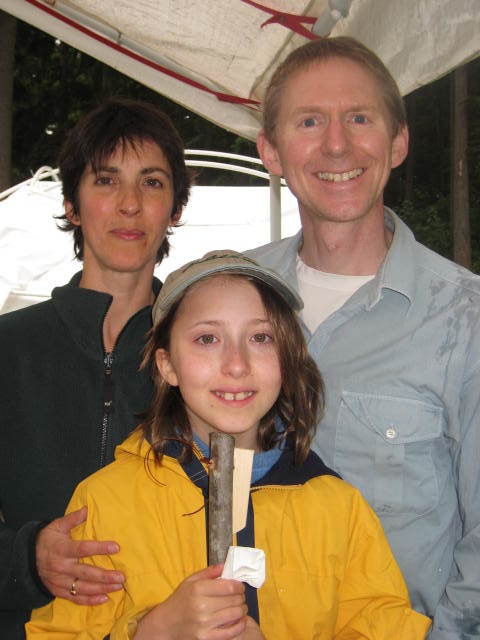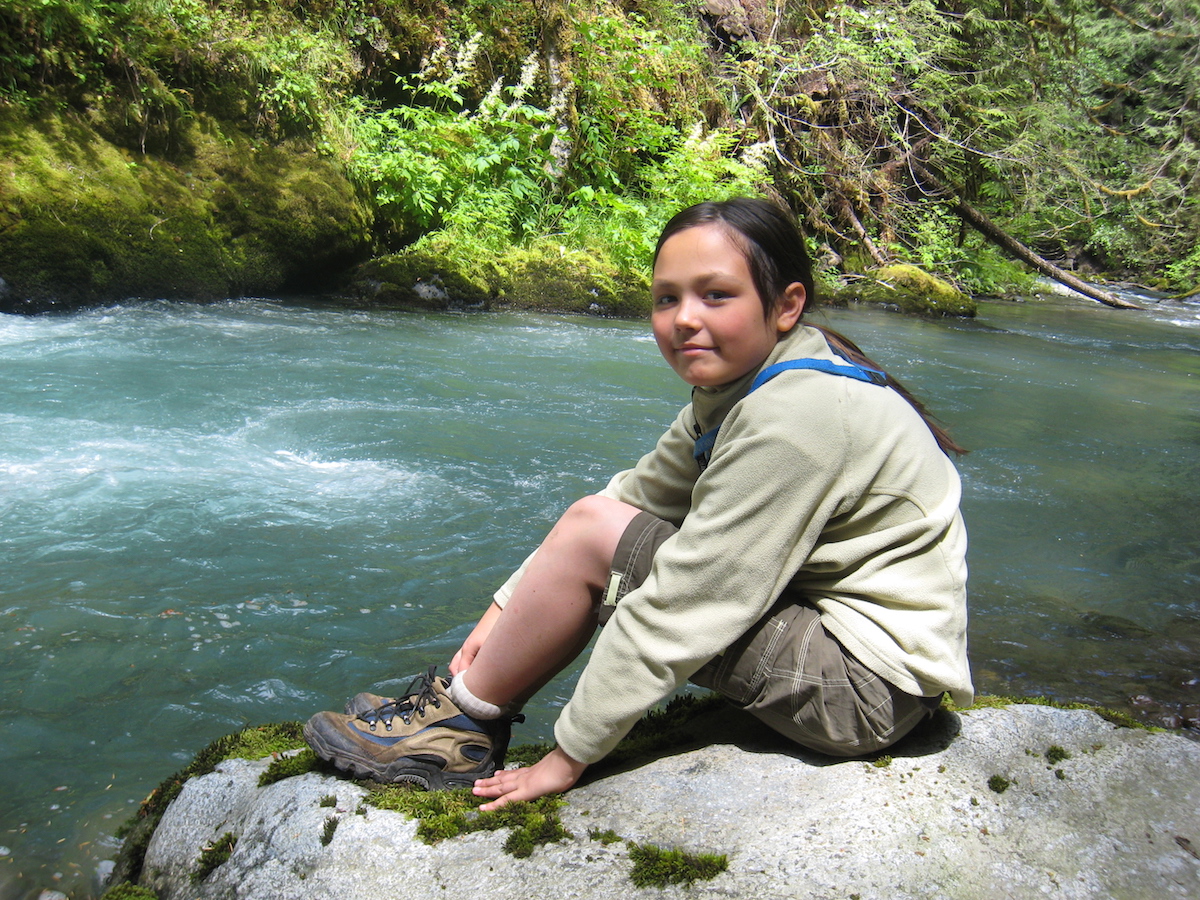Frequently Asked Questions
About | History | Staff & Board | FAQs | Directions | Our Locations
COVID-19 FAQs
+ What is Journeys doing to reduce the likelihood of someone bringing COVID-19 to a trip?
For Summer 2023 programming, Rite of Passage Journeys is adopting current public health guidance regarding the management of COVID-19 risk. It is now recommended that only persons with symptoms of illness test for COVID-19 infection. Rite of Passage Journeys is requesting that families carefully monitor health in the weeks leading up to their trip, and if a participant gets sick or displays symptoms of COVID-19 infection, to administer an at-home COVID-19 test immediately. If positive, a second test should be done to confirm that it is not a false positive. A participant who tests double positive in this way must communicate immediately with Rite of Passage Journeys. In order to be able to participate, they must resolve their symptoms and be symptom-free for 5 days. If a participant tests positive and cannot complete the 5 day symptom-free period, our Covid-19 cancellation policy will apply (you will be able to apply the full refundable amount of your tuition towards a future trip
Guides and basecamp staff will follow the same guidelines, testing if any symptoms occur and ensuring the 5 day symptom free recovery period before interacting with a trip.
+ What are your enhanced health and hygiene protocols?
Regardless of the level of effectiveness of each preventative method, it is important that we make every effort to reduce the possibility of transmission of any infectious disease that may be present within the group. Guides may implement the following group practices and guidelines for our trip.:
- Hand-wash/sanitize before and after every meal and meal preparation
- Sterilize shared group equipment after every use (such as cathole trowel, compass, cooking utensils)
- Use of individual tarps to create extra space between participants while sleeping
- Limit to the minimum the number of people involved in cooking group food
- Ration group food into individual portions, to eliminate sharing of snack/trail/group food from the same bag/package
+ What will you do if a student or Instructor exhibits signs of COVID-19?
Because initial symptoms of COVID-19 present similarly to flu or cold symptoms, we will only evacuate if it becomes clear that the participant or Guide exhibiting those symptoms can no longer participate safely on course.
Therefore, as always, any participant or Guide who exhibits a condition that begins to affect their ability to participate safely on course will be evacuated. If a youth needs to be evacuated, Parents will be contacted to come and pick up their child. If those symptoms are consistent with COVID-19 or there are other risk factors, we will test for COVID and if positive, isolate the participant or Guide during the evacuation to the extent it is possible, and consult with local health authorities immediately, for further current protocols.
Any participant or Guide exhibiting a condition that is consistent with COVID-19 (such as a fever) which is NOT acute (does not affect their ability to participate safely) will NOT be evacuated.** Guides will contact the Program Director via satellite phone to keep them abreast of the situation, and the trip will continue together. The participant or Guide will continue to follow the same hygiene practices as the rest of the group, plus some additional precautions while they have symptoms. Guides may implement enhanced health and hygiene protocols given their assessment of a participant or Guide exhibiting Covid-19 symptoms. See next question for details on those protocols.
PERENNIAL FAQs
+ What are Rites of Passage? What makes them important?
A rite of passage is a ceremony that marks the transition from one phase of life to another. Although it is often used to describe the tumultuous transition from adolescence to adulthood, it can apply to any of life’s transitions (Births and Beginnings, Initiations, Partnerings, and Endings or Death). There are many passages in our lives we can choose to mark and celebrate.
Journeys primarily focuses on rites of passage for youth that support them in their transition from childhood into young adulthood, and prepare them for their eventual entry into full adulthood. For adults, our rite of passage programs emphasize rituals and ceremonies that help participants powerfully claim their past life experiences and transitions, while also supporting them in entering new roles and life stages along the path of adulthood – all the way into meaningful elderhood.
Our goal is that participants return from their rite of passage experience with a new and empowering story that helps them take responsibility for the decisions that set the course of their future. We help each person create the story of who they are and the kind of life they want to build, based within the exploration of their own personal values. We also help them find the story that connects them to their community. From this self-exploration, participants emerge with a stronger sense of personal responsibility to all aspects of their lives – stretching all the way out to the larger world of which they are a part.
+ Who are your programs for?
Our Youth Programs serve diverse age groups: 8-10, 10-12, 12-15, and 15-18. Our Adult Programs serve everyone from 18 to 80+. Each program for a particular age group is carefully designed around the appropriate developmental tasks of that particular life stage.
+ Does Journeys have a religious background?
Rite of Passage Journeys started in 1968 as a program of the Ecumenical Institute, to provide an initiatory experience for their children, and so began as an ecumenical religious program. In 1973, the Ecumenical Institute created the Institute of Cultural Affairs, which shifted focus from religious revival to social and cultural revival and international social justice work, and Rite of Passage Journeys was run under the ICA program. In 2007, Rite of Passage Journeys separated from ICA, to become its own secular nonprofit organization.
Today, Journeys is not affiliated with any religious background. However, we believe that spirituality is part of the four key components in every human’s life (physical, mental, emotional and spiritual), and we value and encourage each person’s deep and meaningful connection or relationship with whatever they consider the Sacred. This relationship is unique for each person and we do not strive to shape it, only to nurture its own natural growth and development.
+ Is Journeys a Wilderness Therapy Program?
No, Journeys is not a wilderness therapy program. Our trips are often healing experiences, but we cannot offer the level of emotional and behavioral support that therapeutic programs provide. All of us need healing! However, if you need therapy, Journeys cannot provide it. Our participants have all chosen or consented to go on a program with us. We are happy to recommend other programs that have a therapeutic focus, if that is what you are looking for.
+ Does Journeys perform Native American ceremonies?
No. We follow clear non-appropriative values in our ceremonies. Our ritual practices are emergent, nature-based ceremonies. By emergent, we mean that we strive to make them relevant and meaningful to the particular group of people who have gathered in that particular place. Thus, while each ceremony draws on our previous experience, and is influenced by countless other ceremonial traditions that we have encountered over our 50+ years, each ceremony is also a unique creation of the Guides and participants and the natural world in that moment. We do not incorporate specific ritual or ceremonial practices from any particular religious or cultural traditions. We do try our best to honor and respect those traditions that we feel have been highly influential and inspirational, and are careful to ensure that our participants understand that what we are doing together is our own unique ceremony, and is not an attempt to emulate any other religious or cultural tradition.
+ What are your inclusion (non-discrimination) policies?
Read our complete Inclusion Statements here.
+ Are your programs safe?
Journeys has a long history of safe programs. We take a proactive stance on safety by screening and training our staff thoroughly, participating in extensive Safety Committee Reviews which evaluate our procedures regularly, and by selecting a mentor-to-participant ratio of 1:3. Our staff are trained and certified at a minimum in First Aid and CPR, but most of our mentors are also certified as Wilderness First Responders (which requires recertification every third year).
+ What if I (or my child) has never been backpacking before?
It is common for our rite of passage trip to be a participant’s first time backpacking. While our trips can and do have physically challenging moments along the trail, they are not intended to be tests of endurance, and anyone in average physical condition is capable of participating in our programs. Both youth and adult participants will learn and practice all the core skills they will need for living in the backcountry, such as: Navigation, Cooking, Sanitation, Safety and Campcraft.
+ Am I (or my child) in good enough shape for your backpacking programs?
We ask that all of our participants make an effort to prepare, physically, for our backpacking programs. Usually this involves going on walks (make it a family event!) while wearing properly fitted hiking boots and a weighted backpack.
On our youth programs we expect our 8 – 12 year olds to hike one to four miles per day, our 12 – 14 year olds to hike four to eight miles per day, and our 15 – 18 year olds to hike five to ten miles per day, while wearing a backpack that could weigh up to one-third of their body weight. Our adult programs spend very little time hiking but still require a small amount of physicality. Ultimately, you and your physician will be in charge of making a judgment call in response to this question, though our staff is available to talk about this on an individual basis, with participants, parents or youth.
+ I (or my child) have a physical/developmental/emotional/medical disability. Can I (or my child) still go on a Journeys program?
These questions can only be answered on an individual basis. All of our participants engage in screening through our registration process. If this question is relevant to you, we ask that you email info@riteofpassagejourneys.org to arrange to talk with our Program Director. We do accept adults and youth who have various disabilities, after an in-depth conversation about safety and appropriateness with the participant (and parent or guardian if the participant is younger than 18), as well as any relevant physician or therapist.
+ I am worried about the solo fast (for myself or my child). Is this something that anybody can do? Why do you use fasting on your programs?
In our experience, most everyone can do a solo fast, or a modified solo fast, unless they have certain medical considerations that make it inadvisable. Our youth fast for 24 to 36 hours, our teens fast for 48 hours, and our adult fasts last for up to 72 hours. For the most part, the main challenge of these fasts, even the longest ones, is primarily psychological and not metabolic. And these challenges can be considerable! For many of us, eating is a basic routine of our day-to-day life; it is a social activity, a stress suppressor, and an answer to pains of hunger. A crucial part of rites of passage is removal from all the routines in our daily lives. This gives us a chance to see who we are, when our choices and experiences aren’t guided by these structures and routines. The Solo Fast is a powerful way to remove participants from their prior bodily and social existence, and it provides a remarkable reality check to the stories we tell ourselves about who we are, what we think we need to survive and thrive, and what we are capable of.
These are all generalizations. Every individual’s situation is different, including the level of anxiety that contemplating a solo fast evokes. Our Guides are careful to evaluate each participant, and if it truly appears that attempting a full Solo Fast is more than that individual can take on, there are several options to modify the Solo experience to fit where that individual is in their life at that moment, to allow them the challenge they need without creating a threatening situation. There are a few conditions that may require a participant to eat, or at least have access to food, during their solo vigil, and these are always accommodated.
To insure safety during the Solo Fasts, we establish effective systems to check in and communicate with participants, while preserving the experience of solitude. The timing of these check-ins varies based on age and capacity of the individuals, but allows us to make sure everyone is drinking enough water and doing ok. Ultimately, the Solo Fast is like every other part of our rite of passage journeys – a challenge by choice. Our Guides are skilled at supporting all our participants in making the best choice for themselves (which is rarely the easy choice!)
+ I (or my child) take a prescription medication. Will that be a problem for your program?
Generally speaking, accommodating medications is not a problem on our programs. Youth medications are collected and held by Guides, and distributed at the prescribed time. This is a matter of controlling prescribed substances, not a matter of trusting the youth. In certain situations, non-prescription medications may be approved for self-administration by the Program Director. Adults are asked to carry and take care of their own medication needs.
All participants who will take part in a Solo Fast, from 24 hours up to 72, will be asked to consult with their doctor about the appropriateness of a fast for them, and the safe use of their medications during the fast. Participants who choose not to take medication during the duration of the entire program will also be asked to consult with their doctors.
+ How do you handle food, environmental or other allergies?
Appropriate precaution can be taken for most allergies, however, we are unable at this time to support severe peanut allergies. If your allergy is common and not life-threatening, you will find the appropriate place to describe your condition on our Health Forms in the registration packet. This may be followed up by a call from a program mentor about specifics, if necessary. If your allergy is of a more serious nature, it would be best to have a conversation with our Program Director about specific risks and needs before you continue with the registration process.
+ What about dietary restrictions?
We are able to accommodate common non-medically necessary dietary restrictions, such as gluten-free and vegetarian choices, though our alternative foods in some cases are quite limited. We generally can provide gluten-free grains and pastas, and substitute meat with cheese and nuts, and occasionally plant-based meat substitutes.
Vegan diets are difficult to accommodate, as, aside from nuts there are very few energy-dense substitutes for meat and cheese that are reasonably affordable for the backcountry. If you or your child eat vegan, please contact us to discuss your food needs and options before you register for our programs.
At this time, Journeys purchases organic options wherever feasible, but cannot ensure that program food will be all-organic.
+ I (or my child) cannot afford your programs but feel it is important to participate. Will Journeys help me pay for the program?
Rite of Passage Journeys is committed to providing the necessary financial assistance to everyone who wants to participate in our programs. No one is turned away due to lack of funds. Every year Journeys awards tuition assistance and arranges payment plans for many participants who would not otherwise be able to join us for an experience. If you are in need, please apply for Financial Aid here.
+ I cannot afford to buy all the gear you recommend! Can I (or my child) still come on your program?
Journeys owns a small amount of “Loaner” gear available for youth participants. Some larger items, such as a backpack or sleeping bag, tend to be loaned out very quickly. While our gear bank is small, we are willing to work with you to make sure that you or your child has the best gear possible. Please let us know as soon as possible if you or your child need an item. (If we only have short notice before your program starts, we may not be able to help you!)
Also, if you own extra items that no longer fit your child, please consider donating them to our Gear Bank for future participants. Every year we lose a few items to the adventure, so we always need to replenish our supply. Please bring your extra “donate-able” items to your program start. Thank you!
+ How can I inspire my child to go on your program?
It is not uncommon for a parent/guardian to see and understand the inherent need for our young people to be initiated into a healthy and meaningful next stage of adult life, while sometimes the youths themselves don’t desire it, or even may fear the experience. The best advice we can give you is to talk to your young person. Tell them what the program means to you, and tell them about your own rite of passage experiences (which may have been unacknowledged at the time, or even unsupported by your community). Next, ask them questions about their concerns and fears. Hopefully, after being invited to express their concerns, and maybe getting some misconceptions addressed, they may start to find some curiosity, or even excitement, about the possibility of embarking on an adventure with us.
If your child is still undecided, or resistant, about participating after you speak with them, consider carefully whether their hesitation is just a fear of the unknown, or may be speaking some truth about their readiness for this experience. If you find yourself confident that the time is right, but you need help in supporting your child in embracing the experience, please get in touch with us. We may be able to help you find an effective way to inspire your child to embrace the opportunity, or at least trust it enough to consent to participate.
Remember, moving into a new stage of life is a big task and can seem daunting and frightening – and this is exactly what our programs are asking of the child. Resistance to the reality of leaving childhood is natural and expected. On top of that, saying goodbye to friends, family, technology and comforts for one to three weeks can seem overwhelming, or perhaps inconceivable! Give it time for them to adjust to the idea – sometimes it just takes them some getting used to.
+ My child has never been away from home for this long. What happens if they get homesick?
Homesickness happens, even for our Adult participants (and staff!). Our Guides are trained to respond in the best way possible to support a child who is experiencing these feelings – either through one-on-one mentorship or community campfire talks, whichever makes the most sense for a particular youth. Most participants will experience this feeling for a day or two, but will soon be brought into the moment through activities and laughter.
+ Can my child come with a friend?
Of course! Please DO invite your friends. The reason we whole-heartedly answer ‘yes!’ is that reintegrating to home life after a powerful experience such as this can be challenging. Making new friends is wonderful. And, having a known companion can ease the process of returning, as well as provide a wonderful opportunity for shared story and accountability.
+ Your programs seem expensive - Where does all the money go?
Our core programming is youth Rites of Passage and adult training programs. While most of our Rite of Passage programs happen during June, July and August, it takes a whole year of behind-the-scenes work and preparations to make them possible.
In total, all the tuition we collect only covers about half of what it takes for Journeys to fund an office, a summer basecamp, and the staff, permits, vehicles and gear to prepare for and run our programs. Individual community supporters, because of their deep commitment to provide this experience to all who desire it, contribute the remainder, just over half of our total operating budget.
Journeys is a 501(c)(3) nonprofit organization. Our yearly 990 financial report is publicly available from the IRS website here. We also publish our annual Gratitude Report and Summer Success Report at the bottom of our support page here, for a more concise financial overview and a behind-the-scenes view into our operations
+ What is your cancellation policy?
We run two different kinds of programs: Wilderness Rites of Passage and Intensive Programs, and Community Workshops and Leadership Trainings. These two different kinds of programs each have their own cancellation policy, which you can find here.
About | History | Staff & Board | FAQs | Directions | Our Locations
